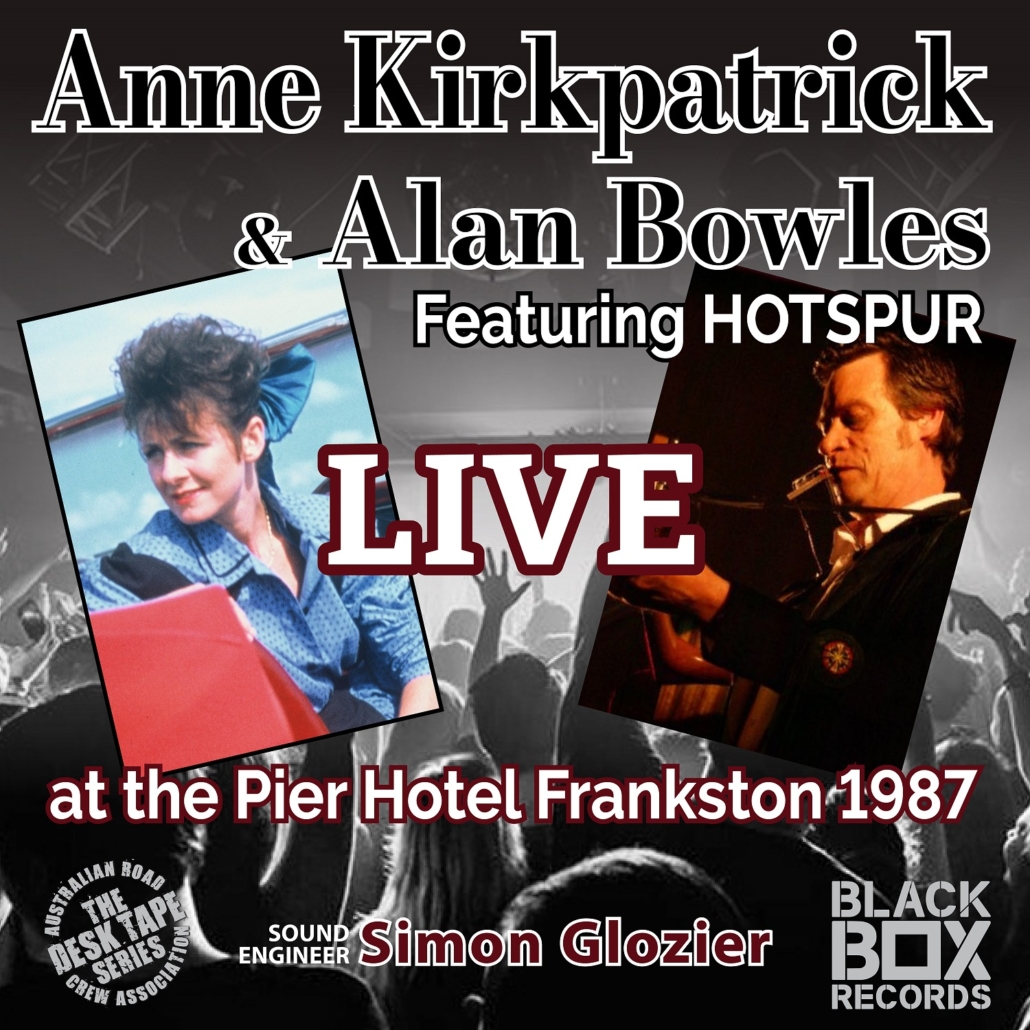| Anne Kirkpatrick | ||
| Alan Bowles | ||
| HOTSPUR | – | |
| Danny Arnott | – | drums, vocals |
| Andrew Forrer | – | bass, vocals |
| Martin Hope | – | electric guitar, vocals |
| Craig Reeves | – | keyboards |
| Alan Bowles | – | vocals, harmonica, guitar |
| Simon Glozier | – | Sound Engineer |

TRACKS
| 1 | Lights In The Mirror |
| 2 | Baby With You |
| 3 | Lights On The Hill |
| 4 | Thinking Tonight Of My Blue Eyes |
| 5 | Honky Tonk Girl |
| 6 | Careless Heart |
| 7 | Indian Pacific |
| 8 | Long Ago Shoes |
| 9 | Come Back Again |
| 10 | Queen Of Hearts |
| 11 | I Got You |
| 12 | Oh Lonesome Me |
| 1 | Wabash Cannonball |
| 2 | Oh Darling |
| 3 | The Wanderer |
| 4 | Hillbilly Highway |
| 5 | Don’t Fence Me In |
| 6 | I’m Walkin’ |
| 7 | It Doesn’t Matter Anymore |
| 8 | Ghost Riders In The Sky |
| 9 | Six Days On The Road |
| 10 | Digging Up Bones |
| 11 | T For Texas |
| 12 | Ring Of Fire |
| 13 | Short Road To Love |
THE BAND/ARTISTS
Details
| Anne Kirkpatrick | ||
| Alan Bowles | ||
| HOTSPUR | – | |
| Danny Arnott | – | drums, vocals |
| Andrew Forrer | – | bass, vocals |
| Martin Hope | – | electric guitar, vocals |
| Craig Reeves | – | keyboards |
| Alan Bowles | – | vocals, harmonica, guitar |
THE RECORDING
Anne Kirpatrick and Alan Bowles
featuring Hotspur
at the Pier Hotel Frankston 1987.
All the ARCA Desk Tape Series recordings are available through Black Box Records – australianroadcrew.com.au
Mastering:
Phil Dracoulis
THE CREW
| Simon Glozier | – | Sound Engineer |
WHO WE ARE
The Australian Road Crew Association Limited (ACN 684 129 468) (ARCA) is a non-profit company limited-by-guarantee dedicated to helping Road Crew Past and Present.
Road Crew are the collective backbone of the Australian music industry. Road Crew have technical ability that are unique and wide ranging. Without dedicated Road Crew there would be no Live Production.


